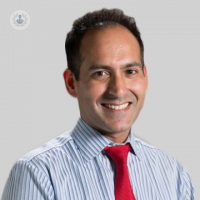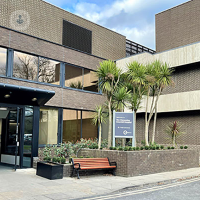Geriatric medicine
What is geriatric medicine?
Geriatric medicine is a growing medical specialty that focuses on the care and treatment of older people. Older age involves a distinct set of challenges. Many older people are living with multiple long-term conditions and are much more vulnerable to a range of problems. Your reactions to medication also changes in older age.
A geriatrician is a specialist when it comes to how different conditions interact with one another, how various medications will affect you, and how to spot the signs of potential problems such as vulnerability to falls.

What kinds of conditions do geriatricians treat?
Geriatricians see patients with a wide range of common conditions including:
Geriatricians also assess patients for their risk of falls by detecting foot problems and assessing their balance.
What kind of treatment do geriatricians provide?
Geriatricians work alongside different specialties to plan and coordinate your care. They can work in many different medical settings, but are mainly based in hospital outpatient wards.
One of the key roles a geriatrician plays is in carrying out a comprehensive medical assessment. When you go to the GP, you might have a number of complaints, not all of which can necessarily be addressed fully. A geriatrician's job is to work out the most important problems you face, including those you haven’t identified yourself, and to put together a program of individualised care. A geriatrician’s work is a complex balancing act, and listening to your priorities and the things that are most important for you in life is a key part of the role.
Geriatricians are also important when planning your care after an operation or accident. They will work with clinicians as well as social care staff to plan your care and help you maintain your independence. Geriatricians are also trained to talk to patients towards the end of their life and help them make appropriate plans. This can include setting out treatment preferences in advance and planning care at the very end of life.














